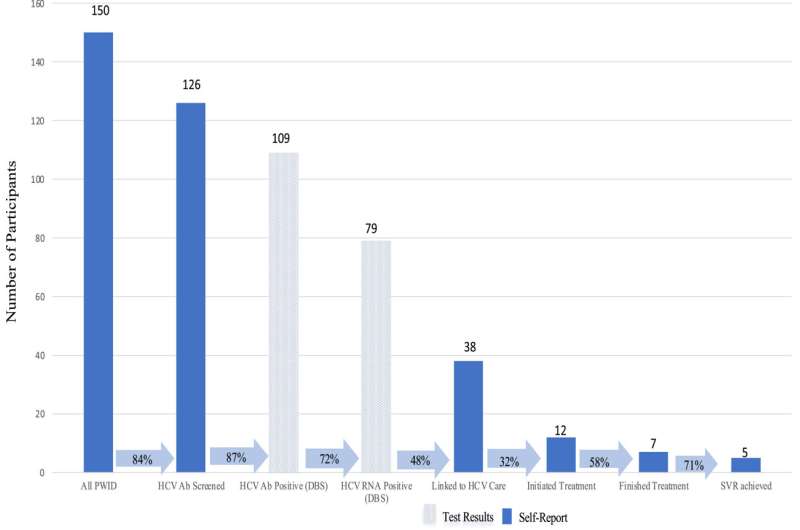This article has been reviewed according to Science X's editorial process and policies. Editors have highlighted the following attributes while ensuring the content's credibility:
fact-checked
trusted source
proofread
Study finds significant care gaps for people who inject drugs in Puerto Rico

A study led by researchers at the CUNY Institute for Implementation Science in Population Health (CUNY ISPH) at CUNY SPH reveals worrisome barriers to care for people who inject drugs in Puerto Rico.
People who use intravenous drugs in Puerto Rico are disproportionately affected by the hepatitis C virus (HCV), which is now curable thanks to direct-acting antiviral treatments. However, there is a lack of data on the measures in place in Puerto Rico to ensure people who inject drugs have access to HCV care.
For the study, CUNY ISPH Investigator Yesenia Aponte-Meléndez, Associate Professor Pedro Mateu-Gelabert and colleagues recruited participants using respondent-driven sampling and tested for both HCV antibodies (Ab) and RNA (ribonucleic acid) using rapid testing and dried blood spot samples. They estimated a "cascade of care" based on the results, as well as self-reported data on previous HCV screening, linkage to care, treatment uptake and sustained virologic response collected through a questionnaire. The survey also assessed participants' perceived barriers to HCV care.
Out of 150 participants, 126 (84%) had previously been screened for HCV, 87% (109/126) were HCV Ab positive, 72% (79/109) were RNA positive,48% (38/79) were linked to care, 32% (12/38) initiated treatment, 58% (7/12) finished treatment, and 71% (5/7) achieved sustained virologic response, meaning the virus was not detected 12 weeks or more after completing treatment.
Barriers to HCV care included concerns about drug abstinence requirements, access to transportation, stigma in health care settings, and lack of knowledge about HCV treatment sites.
"This is the first study that assesses HCV RNA prevalence among people who inject drugs in Puerto Rico," says Aponte-Meléndez. "The results show there is a large burden of HCV infections among this population and they in fact constitute the core of the HCV epidemic in the country. Stigma and the lack of access to HCV treatment are major barriers to saving lives and ending the epidemic."
"The provision of non-stigmatizing and low-threshold services will be crucial for reducing HCV-related mortality and transmission in Puerto Rico. Flexible models of delivering HCV care are needed to increase access to HCV services to people who inject drugs in rural communities."
More information: Yesenia Aponte-Meléndez et al, Hepatitis C virus care cascade among people who inject drugs in Puerto Rico: Minimal HCV treatment and substantial barriers to HCV care, Drug and Alcohol Dependence Reports (2023). DOI: 10.1016/j.dadr.2023.100178




















